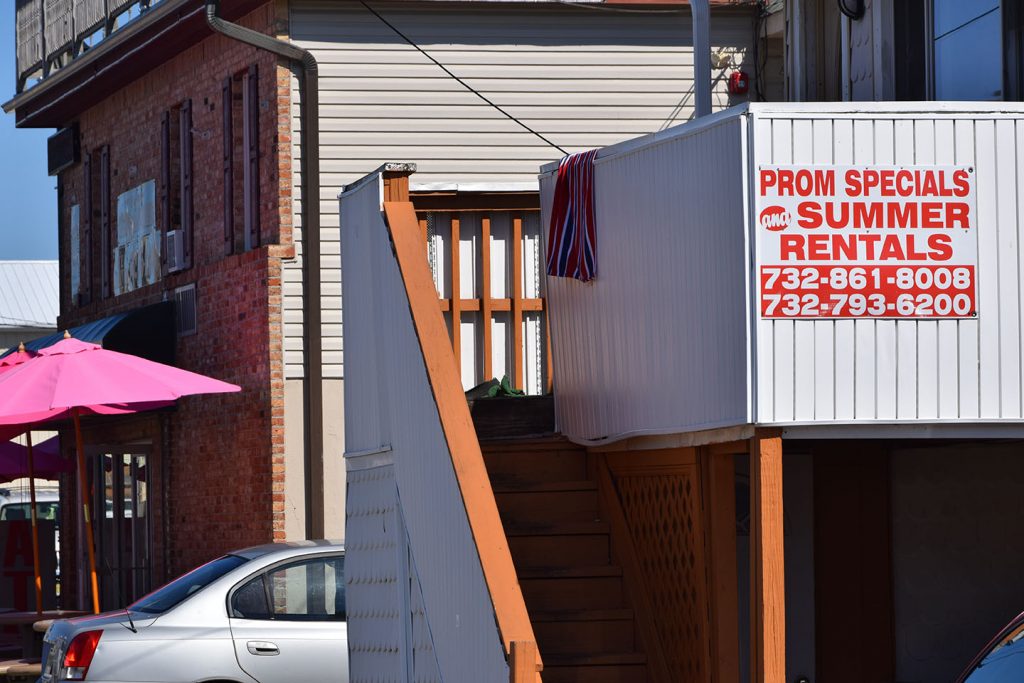As officials in Seaside Heights continue to pursue measures intended to redevelop the borough into a family-friendly resort and year-round community, several were surprised to learn that the town lacked a law on the books in nearly every Shore community.
The so-called “Animal House Law” is a state statute that allows municipalities to levy penalties on rental units that are repeatedly leased to troublesome tenants. But despite the fact that the law has been on the books for decades in Trenton, Seaside Heights never adopted a local enabling ordinance, leaving officials with few remedies to deal with rowdy renters.
The borough council this week passed an Animal House ordinance – named for the 1978 John Belushi movie – that requires the same penalties that are codified in most other Shore towns. The ordinance allows the borough to designate a hearing officer – an attorney who does not live or own property in Seaside Heights – to hear cases involving the law. Tenants can be cited for a number of quality-of-life violations, including “indecent, tumultuous or riotous conduct,” as well as assaults, harassment of others, threats, public urination, lewdness, criminal mischief or excessive noise.
“It’s similar to our mercantile ordinance already on the books, but this is geared specific to our rental properties,” said Borough Administrator Christopher Vaz.
If a person on the premises of a rental property is convicted of violating borough or state statutes on any of the violations listed in the ordinance twice in a period of 24 months, the landlord would be required to post a cash bond against the consequences of future violations. The bond would be determined by the hearing officer and range from $500 to $5,000 depending on the “nature and extent” of the incidents which occurred. In the case a future, third tenant is convicted of a violation, the bond may be forfeited in whole or in part.
Landlords who rent to troublesome tenants would be required to post a bond for up to four years, though the hearing officer could authorize an extension.
Under the ordinance, the borough would also have the option of seeking an injunction from superior court which would prohibit the landlord from renting the property or renewing existing leases on the property until the bond is paid or the landlord provides proper security to ensure the violations will not be repeated.
Seaside Heights officials have taken a swift route to address problem rentals this season. The borough council banned “teen nights” at nightclubs and have considered setting an age limit for renting both homes and motel rooms. Officials have cited ongoing issues with unruly “prom rentals” as one of the reasons behind the push.
Michael Redpath, executive director of the Seaside Heights Business Improvement District, voiced support for the measure.
“The better the quality of life, the better the quality of guests and events we can attract,” he said. “You will see your income increase as more people spend more money in Seaside Heights.”
There were no public comments opposing the ordinance during a hearing held Wednesday. The ordinance passed unanimously.

Advertisement

Seaside Heights & Seaside Park
Seaside Heights School Board Seeking More Participation, Will Change Meeting Times

Police, Fire & Courts
Seaside Park Man, 68, Charged in Fatal Crash With Pedestrian

Ortley Beach & North Beaches
Lottery Ticket Worth $10K Sold at Ortley Beach Acme

Ortley Beach & North Beaches
Abandoned Private Island ‘Mansion’ in Barnegat Bay Poised for Demolition








